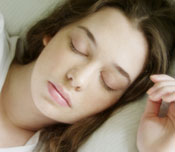 It includes cognitive psychotherapy, sleep hygiene, stimulus control, sleep restriction, paradoxical intention, and relaxation therapy.
It includes cognitive psychotherapy, sleep hygiene, stimulus control, sleep restriction, paradoxical intention, and relaxation therapy.
Drs. Parul Harsora and Jennifer Kessmann from Dallas, Texas reviewed all of these nonpharmacologic approaches. Let’s focus on patient education.
Education for sleep hygiene instructs patients about good sleep habits and behaviors. They can be divided in things to avoid and things to do.
Things to avoid
- Caffeine and nicotine, especially late in the day.
- Exercise 4 hours before bedtime.
- Daily exercise promotes sleep, but exercise shortly before bedtime can interfere with it.
- Heavy evening meals.
- Naps.
Things to do.
- Maintain regular bedtime and awakening hours each day.
- Keep the bedroom at a comfortable temperature.
- Keep the bedroom as dark as possible.
- Schedule relaxation time before bed, with use relaxation techniques.
- Use earplugs if noise is a problem.
- Expose yourself to at least 30 minutes of daylight in the morning.
The bottom line?
Chronic insomnia affects 10% to 30% people. The authors conclude, “Cognitive behavioral therapy is effective for treatment of primary insomnia… However, its use is impeded by several factors, including under diagnosis of insomnia and lack of awareness among healthcare professionals.
More support for the role of cognitive behavioral therapy for insomnia can be found here, including summaries of several studies where it was reportedly superior to drugs and combined with drug therapy.
1/24/09 20:25 JR